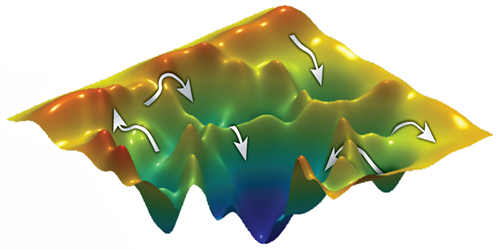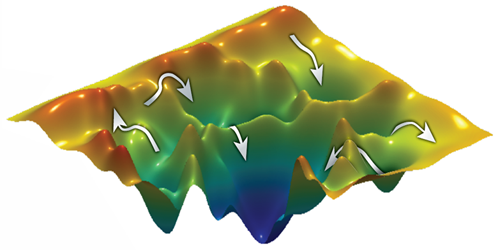Quantum Annealers Limited by Temperature
Quantum computers have burst onto the marketplace, with so-called “quantum annealers” being bought up by several big-name companies. Despite the excitement, researchers are not yet certain that quantum annealing can perform faster than conventional computing. Confirming these doubts, new theoretical work shows that quantum annealing faces a fundamental limitation: as machines grow larger, they must be cooled ever closer to absolute zero.
Quantum annealers are designed to work on optimization problems, such as finding the lowest-energy state in a large landscape of candidate states. Unlike traditional computers, there are no logic gates in a quantum annealer. Instead, the qubits in the device are coupled together in a way that mimics the problem to be solved. Through quantum interactions, the qubits evolve toward the optimum configuration. Current state-of-the-art annealers, like those sold by Vancouver-based D-Wave Systems, have solved a number of problems, but so far these tests haven’t shown any significant speed-up over classical machines.
Temperature is one of the factors limiting annealer performance, and the problem may only get worse as more qubits are added. Tameem Albash from the University of Southern California, Los Angeles, and colleagues have performed a thermodynamic analysis of a general quantum annealer model. For a fixed temperature, they argue that the energy range of final outcomes becomes more spread out as the system size increases. Consequently, it becomes highly unlikely that the system will evolve to the lowest-energy state, or optimum configuration. The team showed that their arguments were consistent with annealing runs on a D-Wave machine with around 1000 qubits. One way to overcome this limitation is to work at a lower temperature, but current annealers already operate at millikelvin temperatures, so further cooling may be impractical.
This research is published in Physical Review Letters.
–Michael Schirber
Michael Schirber is a Corresponding Editor for Physics based in Lyon, France.





